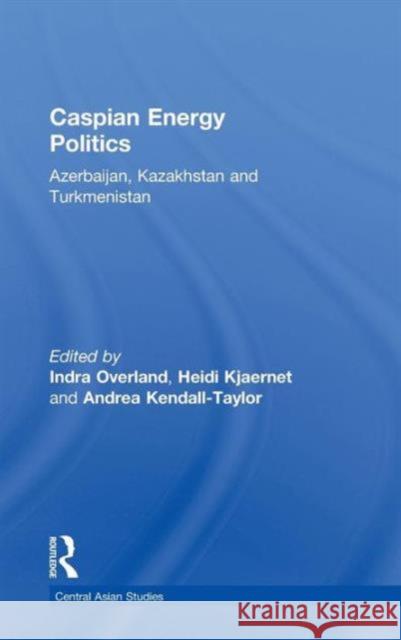Caspian Energy Politics: Azerbaijan, Kazakhstan and Turkmenistan » książka
Caspian Energy Politics: Azerbaijan, Kazakhstan and Turkmenistan
ISBN-13: 9780415549165 / Angielski / Twarda / 2009 / 208 str.
Caspian Energy Politics: Azerbaijan, Kazakhstan and Turkmenistan
ISBN-13: 9780415549165 / Angielski / Twarda / 2009 / 208 str.
(netto: 699,68 VAT: 5%)
Najniższa cena z 30 dni: 705,23
ok. 16-18 dni roboczych.
Darmowa dostawa!
Caspian Energy Politics analyses the role of oil and gas in the development of the three main petroleum exporters in the Caspian region - Azerbaijan, Kazakhstan and Turkmenistan - and how energy resources influence interactions with semi-authoritarian Russia and China. Due to volatile commodity prices and competition for the resources in and around the Caspian Sea, the governments of these petroleum-exporters face a series of difficult decisions. These governments have sought to balance short-term incentives to spend oil revenues as a means to maintain power against the need for a long-term strategy for managing these assets, choices which have further implications for how these countries align themselves internationally. By illuminating important linkages between domestic and international dynamics in these states, the book provides a fresh perspective on energy politics and the impact of petroleum on the development of the Caspian petroleum producers. Expert contributors from Central Asia and the South Caucasus and international scholars provide context-specific insights into the incentives affecting decision-makers that can provide a foundation for strategies to help the countries in the region overcome the negative effects of reliance on oil and gas. As such, the book will be a valuable tool for business actors seeking to understand the role of Chinese and Russian companies in the region, as well as local and international policymakers and non-governmental organisations.
This book analyses the nexus of petroleum, security and governance in three semi-authoritarian states in the Caspian region: Azerbaijan, Kazakhstan and Turkmenistan. Today’s petroleum boom and increasing competition for the region’s resources present the governments of these countries with a series of difficult decisions, both in the areas of domestic policies and international relations. It is particularly in these fields that this book makes a significant new contribution by linking the analysis of domestic and international issues. In the first part, the domestic role of oil in the development of the three states is analysed, in the second part their external energy relationships with semi-authoritarian Russia and China is examined. The book moves beyond previous explanations of the ‘natural resource curse’ by providing a context-specific account of the incentives affecting oil wealth management in the Caspian region. Furthermore, Kazakhstan, Turkmenistan and especially Azerbaijan face a finite horizon for the production of oil and gas: this makes it important to understand the connections between the region’s political evolution, petroleum revenue management, and the overall development trajectory of the region. This book provides a timely and much needed analysis of the current impact of oil on the development of this crucial region.











